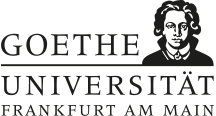
Lorraine Daston
Gemeinsame Veranstaltung mit dem Excellenzcluster „Die Herausbildung normative Ordnungen“ und dem SFB „Schwächediskurse und Ressourcenregime“ der Goethe-Universität.
In the first half of the twentieth century philosophers, historians, and social theorists began to argue that the modern world had originated neither with the religious reformation of the sixteenth century nor the political revolutions of the eighteenth century nor even the industrial revolution of the nineteenth century. No, the origins of the modern world lay in the Scientific Revolution (a term just then coming into common usage, in large part due to these authors). Just exactly when this revolution had occurred (1500-1700? 1300-1800? Still ongoing?), what its contents were (astronomy and mechanics certainly, but what about biology and chemistry?), and who its heroes (Copernicus? Bacon? Galileo? Newton?) – these were all matters of dispute. But British, French, American, and German authors were surprisingly convergent in their views about the nature of the transformative modernity wrought by science: nothing less than the creation of the modern mentality, and with it, the loss of lived experience.
Lorraine Daston
Max Planck Institute for the History of Science, Berlin
